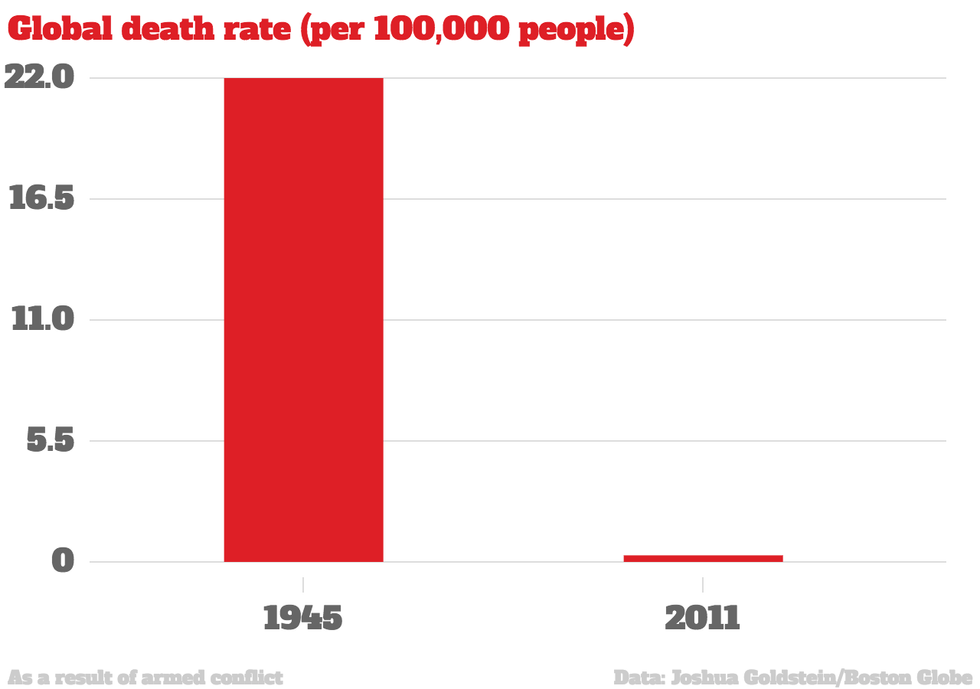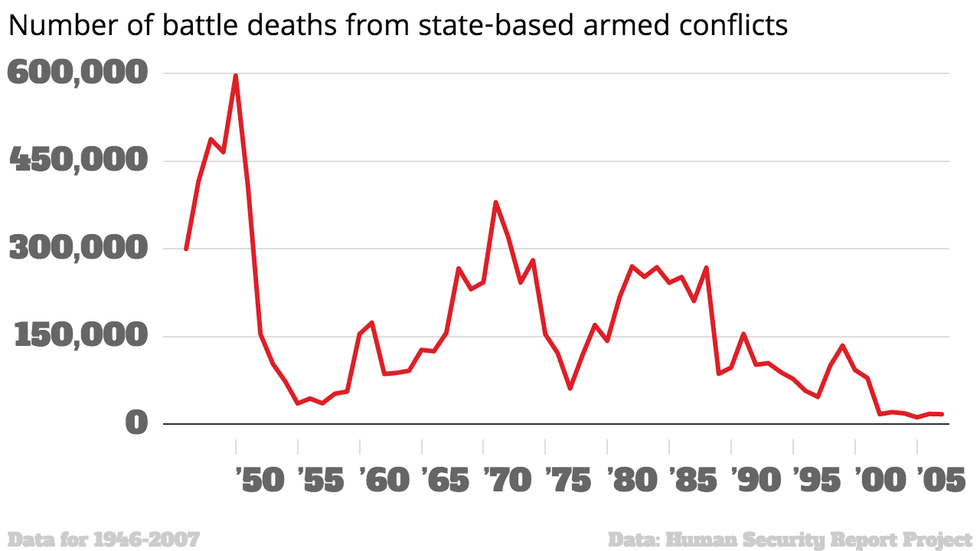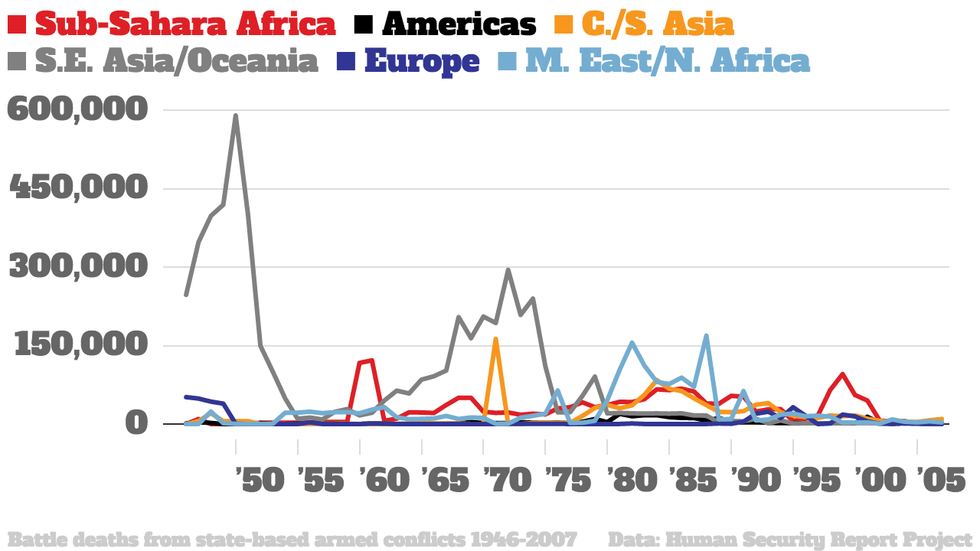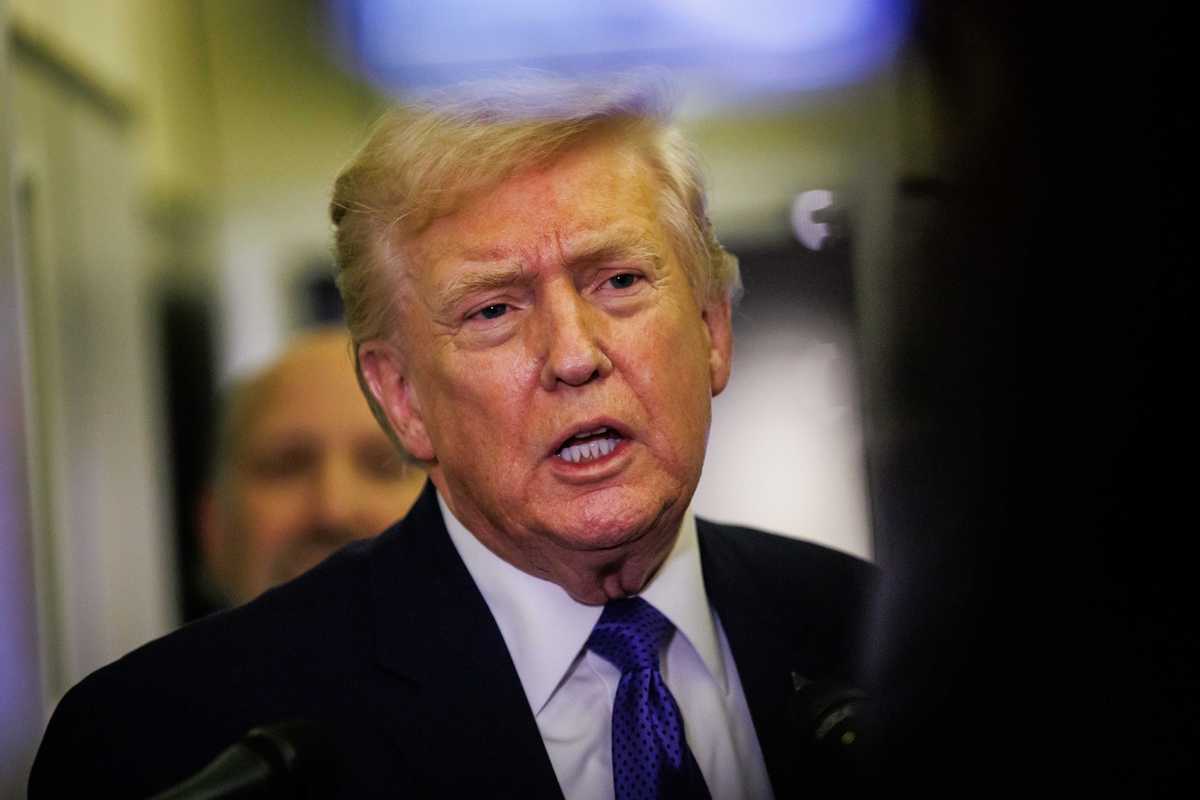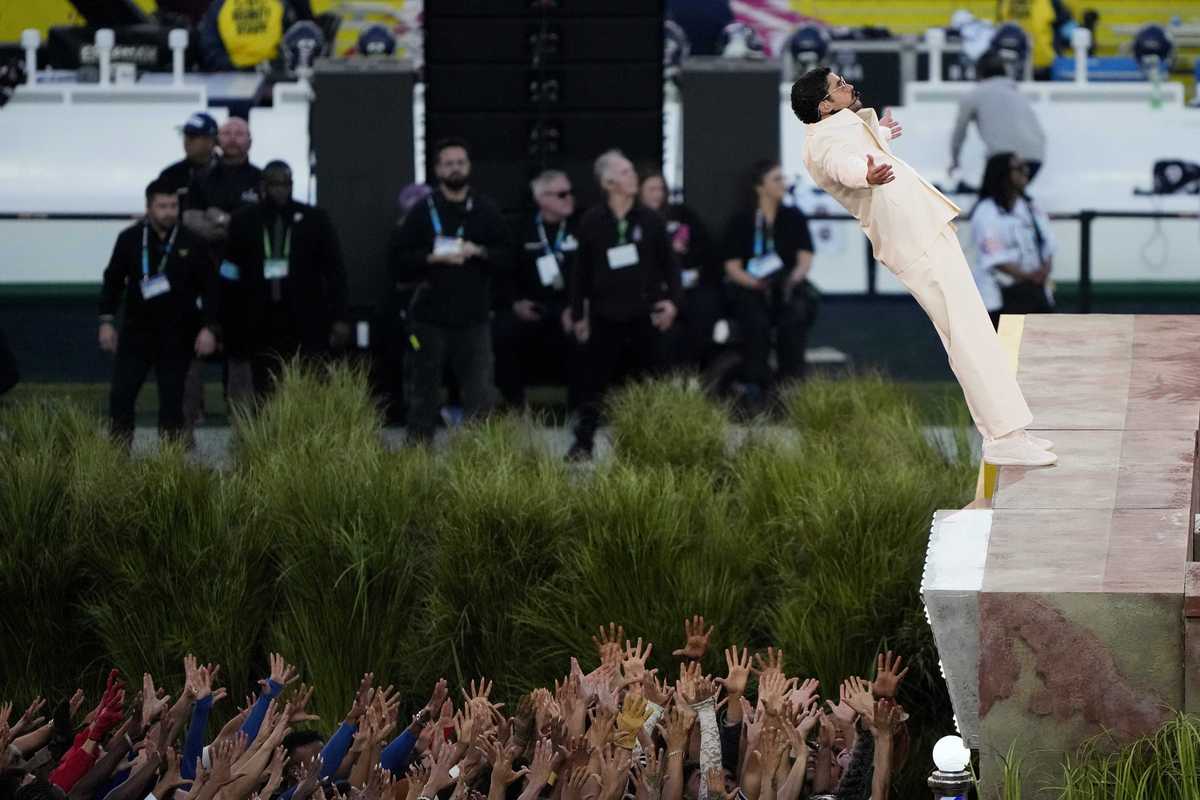News
Louis Dor
Sep 11, 2016
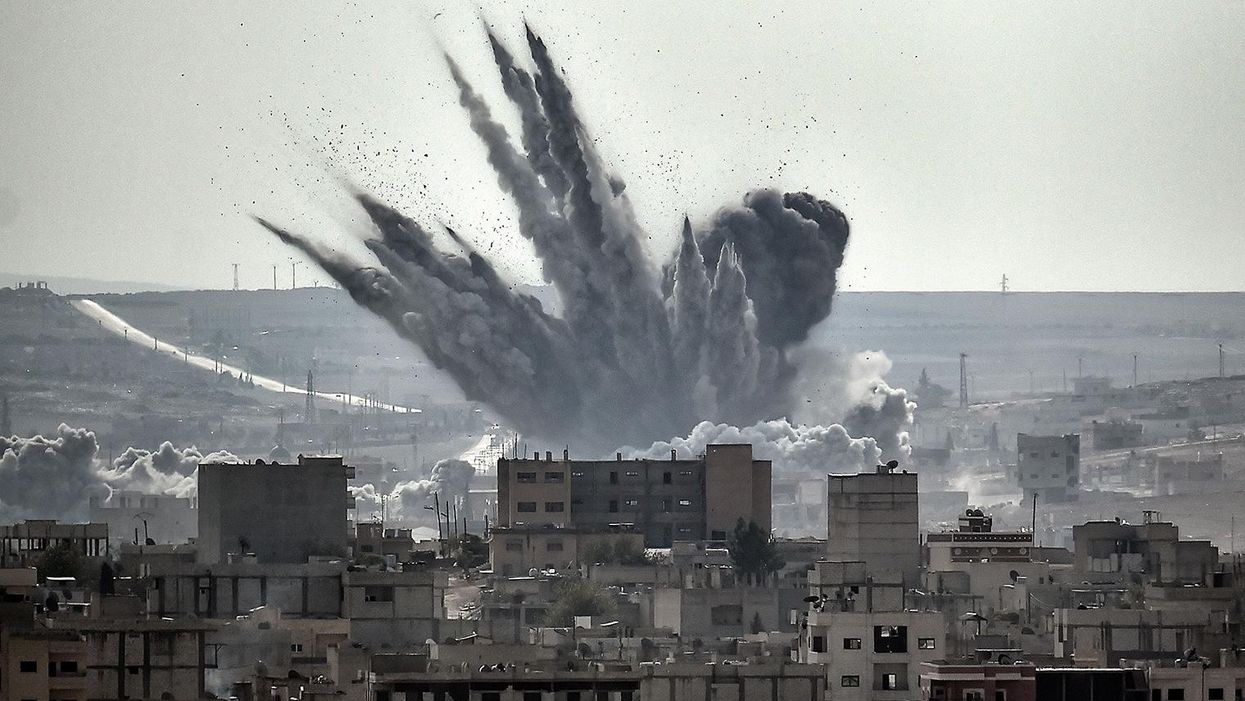
Picture: ARIS MESSINIS/AFP/Getty Images
If you are to look at global trends in armed conflict between states, there's a lot to be optimistic about - the amount of people dying from war is decreasing.
This was pointed out earlier in the year by Joshua S. Goldstein, emeritus professor of international relations at American University and a research scholar at the University of Massachusetts Amherst, in the Boston Globe:
Of special note is the continuing absence of wars between the world’s uniformed national armies. These forces exceed 20 million soldiers and are armed to the teeth. Yet the last sustained war between these armies was in 2003, in Iraq.
Today’s skirmishes between countries, such as the recent Armenia-Azerbaijan flare-up, the Turkish downing of a Russian plane, and the incidents between North and South Korea, kill dozens of people rather than the hundreds of thousands, or millions, that died in the all-out wars that nation-states have fought throughout history, such as the Iran-Iraq and India-Pakistan wars.
In short, sustained warfare between large armies are fewer and further between.
That's the most positive thing in the world today, these big world wars between national armies that used to happen regularly throughout most of history are not happening anymore.
This is all encouraging news and it is largely due to organisations such as the United Nations that countries no longer see military conquest as a route to power.
However, Goldstein noted this doesn't mean we are growing rid of violence - major conflicts in Syria, Nigeria, Iraq and Afghanistan are ongoing and continue to devastate lives - it also presents itself in other forms.
Of course, the world continues to suffer from other forms of violence: terrorist bombings that kill dozens, drug gangs that kill thousands, and homicides that kill hundreds of thousands. But the latest inroads against a major category of violence — war — after five years in which it had lurched in the wrong direction, deserves our attention and gratitude.
More: What Jeremy Corbyn was doing just before the Iraq War happened
More: How British attitudes to the Iraq War changed over 12 years
Top 100
The Conversation (0)
